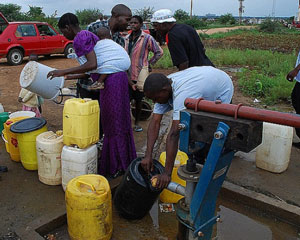
OVER 130 people died of diarrhoeal diseases countrywide since the beginning of the year, a government weekly disease surveillance report has revealed.
BY PHYLLIS MBANJE
The latest report by the Ministry of Health and Child Care for the week ending February 23, says 132 people died of common diarrhoea in the past two months with almost 50% of that figure being children under the age of five years.
The report says on average over 12 000 cases of diarrhoea were recorded weekly throughout the country with most cases coming from Manicaland province.
The Health ministry said 17 deaths and 12 412 cases of diarrhoea were recorded for the week ending February 16.
The deaths were reported from Bindura district in Mashonaland Central province (2), Bubi district in Matebeleland North province (1), Gokwe South district in Midlands province (4), Zvimba district in Mashonaland West province (2), Harare’s Parirenyatwa Group of Hospitals (4) and Chitungwiza Central Hospital (2).
Ministry of Health and Child Care director of epidemiology and disease control, Portia Manangazira yesterday said diarrhoeal cases were difficult to manage in the absence of potable water.
“Diarrhoeal infections thrive where there are challenges of clean water and as it stands, many people do not have access to clean water and so hygiene is hugely compromised,” she said.
- Chamisa under fire over US$120K donation
- Mavhunga puts DeMbare into Chibuku quarterfinals
- Pension funds bet on Cabora Bassa oilfields
- Councils defy govt fire tender directive
Keep Reading
“For us it is not so much about numbers but the persistence of the disease which is an indication that there is something amiss and in this case it is the battle for clean water. How do you expect a whole family to be hygienic when they only have a 20 litre bucket of water?” Manangazira said the Health ministry was carrying out advocacy initiatives promoting good hygiene practices but such efforts were being held back by the persistent lack of clean water.
“Then there is also the mushrooming of people just selling food everywhere, from the boot of their cars to salons,” she said. “In most cases you cannot guarantee that the food handlers followed the proper ways of preparing food under clean environments.”
Manangazira however said the long-awaited preventive vaccine for diarrhoea for children had finally been received in the country.
Since last year, the Ministry of Health and Child Care had been battling to get the vaccine which would hugely reduce cases of rotavirus, a leading cause of severe diarrhoea in infants and young children worldwide.
Last year, diarrhoea accounted for 60% of child deaths countrywide. “We received it [vaccine] on February 27 and are currently organising our health workers so that we can start dispensing it,” said Manangazira. “It will go a long way in reducing incidences of diarrhoea in children.”
The Health ministry took the decision after the World Health Organisation (WHO) recommended that all national immunisation programmes incorporate rotavirus. In 2009, WHO estimated that rotavirus vaccination would reduce child deaths by 45%.
So far, children in Zimbabwe are only being immunised against tuberculosis, polio, pertussis (whooping cough), diphtheria, tetanus, haemophilias, hepatitis B, meningitis, measles and pneumonia.











